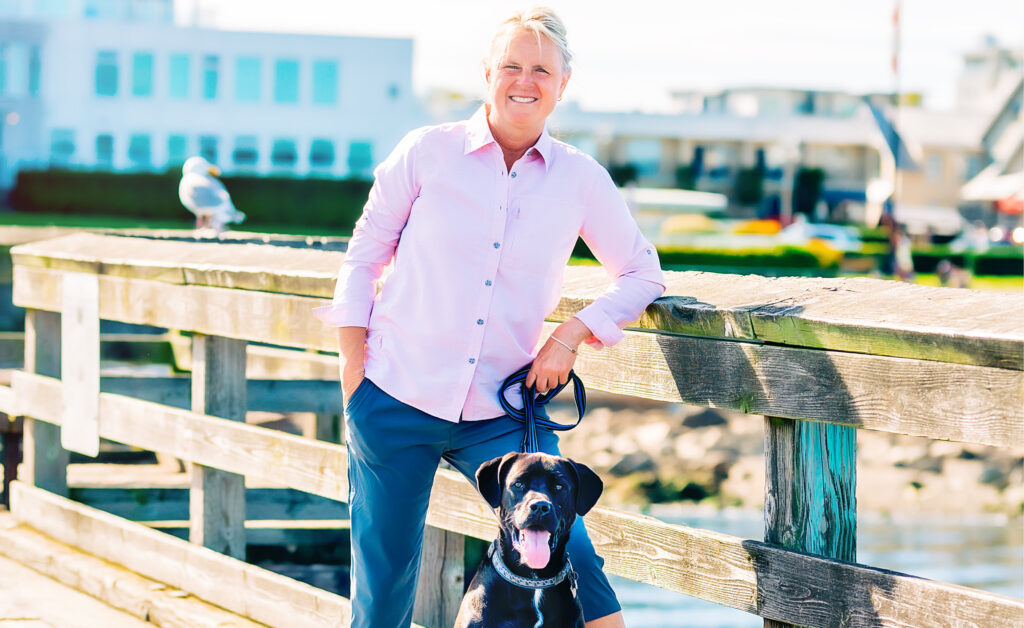by Jo Barnes –
For over 30 years he worked in the field of land stewardship; now he works in his own field modelling what it means to be a steward of the land.
Mike Romaine, owner of Saanich’s certified organic Healing Farm, has held many provincial and federal government positions looking at land use and sustainability, and now operates his own farm applying these principles and educating others.
“We need to reconnect with our natural environment,” shares Mike. “It can be viable, long term and sustainable.”
After his retirement Mike began working with non-profit organizations like BC Watershed Stewardship Alliance. Collaborations and conversations sparked personal reflection.
“I worked with Indigenous groups when I was doing non-profit work,” shares Mike. “They kept saying that reconnecting with the environment is a key requirement to being healthy, healing self and community and addressing land use and stewardship activities.”
The idea of restoring our relationship with our environment and finding ways to live in harmony with it prompted the farm name and philosophy.
Mike and his wife Sharyn purchased the farm in 2004 after careful consideration.
“I had taken retirement. We were looking for a property,” says Mike. “After 39 properties, we found what we were looking for here.”
Situated at the south end of the Martindale Valley, Healing Farm is a beautiful 18-acre property. About half of it is West Coast forest with towering 400-year-old cedars and hemlocks. Running through it are five or six natural springs which supply water to the property. Another eight acres is orchard and gardens. It’s a setting familiar to this farmer.
“I grew up on a farm in the West Kootenays. It was a mixed farm with fruit, veggies, horses, sheep, pigs, and turkeys,” says Mike. “I was involved from a a young age, and I absorbed some things.”
The farm is brimming with life with an orchard that offers a dizzying diversity.
“There are 20 to 22 varieties of sweet cherries, eight varieties of sour cherries, six varieties of peaches, 75 varieties of apples, 20 varieties of pears, 25 varieties of plums, as well as nectarines, apricots, figs, mulberries, persimmons, grapes and nut trees including walnuts, hazelnuts, almonds and chestnuts,” shares Mike.
He believes variety and range of species is the key to productivity and natural sustainability.
“It’s so important to retain many varieties. The genetic stock is vital to maintain.”
In addition, natural habitat is retained. In the forest old growth helps to promote new growth. The interplay between species is vital. Woodpeckers eat insects and barred owls keep rodent numbers in check. Ecosystems are understood and respected.
“We have honey bees and mason bees,” shares Mike. “The bees are the main pollinators of our fruit trees.”
Everything has its place and function. There are designated buildings for specific purposes such as the poultry barn where chickens freely lay their eggs, the maple syrup collection shed or the fruit and vegetable building where fruit is sorted and transformed into delicious fruit leather or juice. There is a specific area housing a licensed egg grading station. Here eggs are evaluated for appearance, weighed, graded and appropriately packaged.
So too, everything has its value here.
“Some apples may have blemishes so might not have that immediate appeal,” says Mike, “but the flavour is still wonderful, so they’re dried into fruit leather, made into pies or turned into delicious fruit juice.”
This vision of a restored connection between people and environment is also realized through community outreach in the form of educational farm tours covering a variety of topics such as the role of bees, the diversity of agro crops on Southern Vancouver Island, humane animal husbandry, climate change and our role as global citizens. Currently, custom tours are available for smaller groups. Reservations can be booked ahead by contacting the farm directly.
“We have a holistic approach. We want to build and demonstrate how to live in harmony with the environment,” says Mike. “We do tours to help others understand why farms are important.”
Daily hard work and the desire to protect, nurture, and work with nature results in dividends such as a good harvest and wonderful flavours.
“Customers frequently say that our eggs are the best on the Island,” says Mike. “They’ll say ‘we really like the flavour.'”
Currently, the farm’s bounty is available at retailers including Root Cellar, Lifestyles (Douglas Street), Red Barn (Oak Bay), Mother Nature, Co-Op Food Centre at Keating and Moss Street Farmers Market. Customers can also pick up produce items at the farm by phoning 250-652-6456 or emailing info@healingfarm.ca
Whether it’s the forest or orchards, the buildings or activities, or the daily buzzing of the bees, just like the springs that flow through the property, there is a life force flowing through this farm. Healing Farm exemplifies true stewardship of the land.
Photo by Janis Jean Photography




